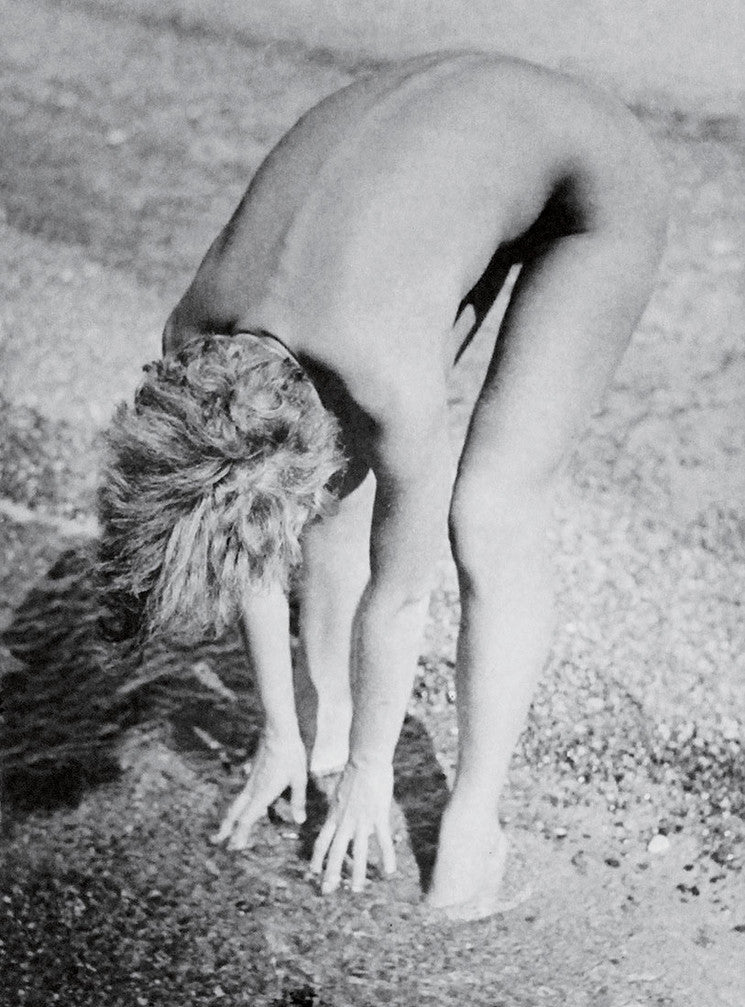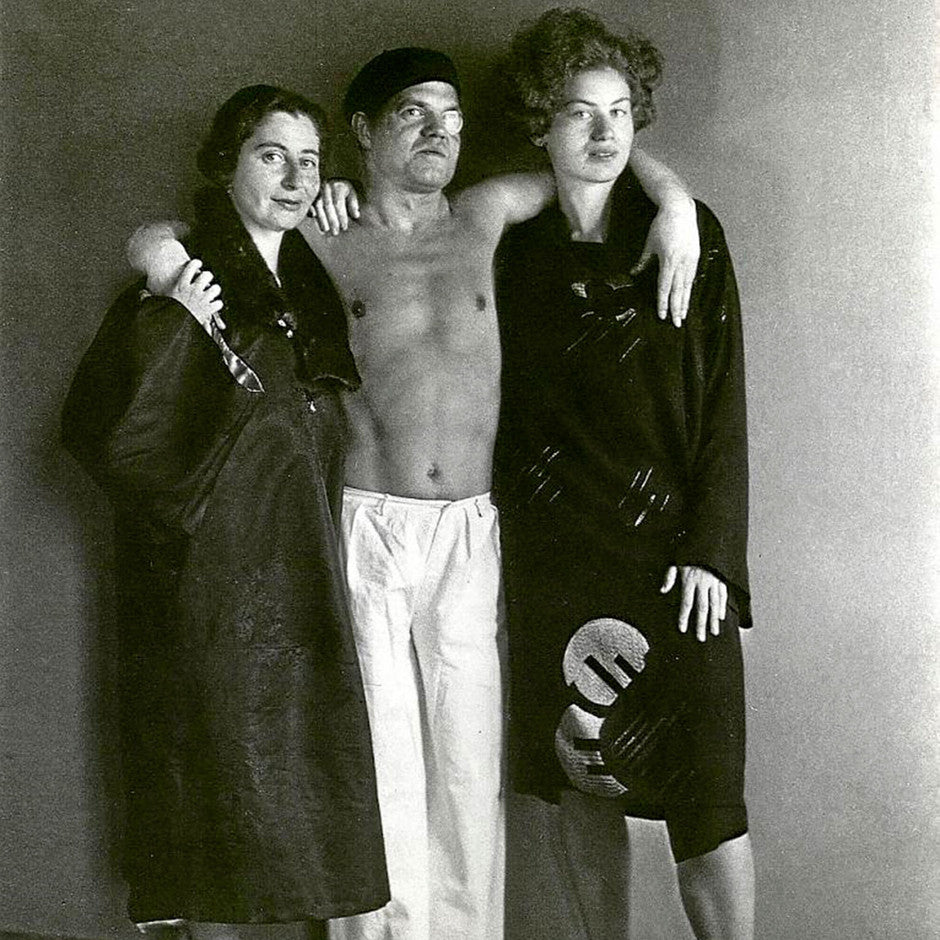Raoul Hausmann expresses his admiration for Ibiza in his book Hyle,Ser-sueño en España. Ibiza is described as a dream that only those who experience the magic of the island will understand.
Ibiza, one of the Balearic Islands off the coast of Spain is surrounded by the Mediterranean sea. The island was originally raw, natural and a hidden sanctuary for a movement of hippies during the 60s and 70s. These travellers created communes, lived in caves and spend their Summers liberated exploring the beauty of the island.

Raoul Hausmann, an Austrian writer and artist arrived in Ibiza in the early 30s describing the ocean as "bright, clear and fresh." Hausmann, one of the pioneers of Dadaism, the island represented "the lost Arcadia, primitivism, the Mediterranean periphery, beautiful, virgin and cheap." He describes the discovery of the island as "the exit door to a liveable world."
The fledgling photographer sought refuge on a small island with his wife and lover to escape the Nazis. He had been forced to flee Germany in 1933 after his name appeared on the "degenerate artists" list compiled by the Nazi regime. Accompanied by his Jewish wife, Hedwig Mankiewitz, and Vera Broïdo, his fellow Jew and lover, he resided on the island from 1933 to 1936.
During his stay on the island, Hausmann immersed himself in its culture and explored its unique landscapes. He was struck by the simplicity and morphology of the island's landscapes, as well as the archaic customs of its inhabitants and their architecture. Hausmann admired the sense of autonomy and self-sufficiency embodied in the peasant homes he encountered.
Hausmann's studies of the Ibizan fincas were influenced by a range of cultural influences, including Phoenician, Egyptian, Roman, and Arabic. He sought to challenge the idea of a single origin and believed that the concept of cultural purity was a fiction. Hausmann's portraits of the island's peasants were a departure from the racial portraits commonly produced at that time. His approach was a blend of study and poetry, and he described his subjects as "fierce and freedom-loving." Hausmann enjoyed capturing them in photographs outside of their typical context.
It's worth noting that while Hausmann did visit Ibiza, there isn't much information about his activities during his stay, beyond his interest in the island's architecture and culture.

Hausmann was deeply fascinated by the architecture of the houses and the people of Ibiza, both of which became primary subjects of his photographs. In addition to his interest in capturing the island's culture and landscape, Hausmann was also known for his sensitivity to nude photography. His intention was to capture small yet intense experiences through his work.
Upon viewing Hausmann's nude photographs for the first time, one may wonder how he managed to capture such intimate moments. However, it is important to note that Hausmann often had a close relationship with his subjects, which allowed him to create a sense of trust and comfort. This approach to photography resulted in his ability to capture the raw and authentic beauty of the human form.

"I wanted to convey how for a man who has gone through all the breakdowns, loneliness and ambiguities, the world becomes an elementary experience through and through women, pushing for a new collectivity, a new social structure, even an interdimensional bond other than today's family."
Raoul Hausmann was a lifelong rebel who challenged and fought against any injustice that he perceived. He continually resisted the authoritarianism and German fanaticism of his era, and his life was marked by a constant struggle against these forces. Throughout his life, he remained faithful to the Dadaist stance of contradiction, questioning the societal and political structures of his time.
Hausmann's deep skepticism of society and the so-called progress was unusual for his time, especially when it was generally considered to be a positive force. His questioning of this doctrine proved prescient as it contributed to the disasters of two world wars. Despite the challenges he faced, Hausmann remained committed to his ideals, using his art to explore and critique the world around him.




